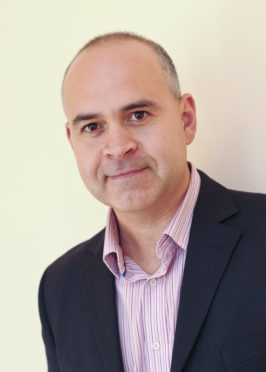Taking a break from our everyday routine can have huge mental health benefits and it doesn’t need a big holiday to make the difference.
The feeling of being on a constant treadmill is common for many of us, especially when we’re faced with stressful situations whether it be at work, in a relationship or financially, so creating some self-imposed down-time may be just what’s needed to help clear our heads and see things more positively.
Even a short break counts
It doesn’t have to be a lengthy holiday on a sun-soaked beach for us to experience the benefits of relaxing and switching off, simply changing our routine for just a couple of days can alter our perspective and improve our health.
On a physical level, when we change our environment we tend to sleep better and wake up more naturally.
A healthy sleep pattern is one of the key ‘ingredients’ to good mental health, so being able to catch up on sleep or even treating yourself to afternoon naps has a hugely positive effect on our mood.
How long is long enough? In order to benefit from any kind of break it needs to be long enough to break the body’s stress response cycle.
This response is set in motion when we feel regularly stressed over a prolonged period and can even turn into chronic stress.
Taking a break before it comes to that is really important.
Spending a weekend without looking at work emails, for example, might be enough to break the cycle.
Getting outdoors, enjoying better weather and generally disrupting existing work day routines may also help.
And whilst a few years ago ‘staycations’ were a buzzword, there is now talk about ‘playcations’ – breaks spent at home involved in a new or creative activity which enables us to think and behave differently to our usual routine.
Long-term benefits
A number of studies have found that the positive effects of breaks to our routine can last for weeks, if not months.
Most of us return from a holiday with renewed enthusiasm for our jobs, for example.
But on a more profound level, being away from the daily grind allows us to take a more holistic view and evaluate how satisfied we are with numerous aspects of our life.
On holiday, we tend to view our families, friends, jobs and other activities more positively, and this attitude can help transform our post-holiday lives.
Preparation and after-care
Looking forward to our holidays, or the ‘pre-holiday high’ is exciting and usually has beneficial effects.
However sometimes it can have the opposite effect, if we allow ourselves to get stressed before we head off. We might even miss out completely on the benefits of having a break.
This is especially true for those responsible for juggling work, home, family responsibilities and who may also be responsible for organising the holiday too… If this is you, draft in some support from other family members and share out the tasks to help take the pressure off.
As much as we need to stay on top of pre-holiday stress, it’s just as important that we control our return to work.
It often helps to relieve a bit of pressure and anxiety if you can get a head start on your inbox ahead of the official return to work, allowing you to feel a bit more in control to handle everything else.
Getting away long term – career breaks
Sometimes a holiday is simply not enough, and a career break or a sabbatical might be what’s required.
Reasons for taking a (planned) career break are manifold but often evolve around having time to assess our lives and decide in which direction to develop.
One of the main results of a career break is regained enthusiasm and energy – whether we apply it to our existing career, or use it to develop new skills, it can even take our life into a completely different direction.
Professor Ewan Gillon,
Chartered Psychologist and Clinical Director for
First Psychology Aberdeen
www.aberdeenpsychology.co.uk










